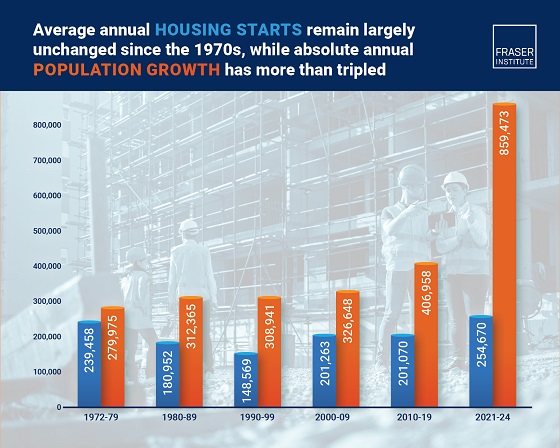2025 Federal Election
Manufacturers Endorse Pierre Poilievre for Prime Minister

News release from The Coalition of Concerned Manufacturers and Businesses of Canada
“Trump Endorses Carney, Poilievre Endorses Canada”
The Coalition of Concerned Manufacturers and Businesses of Canada (CCMBC) strongly supports the election of Pierre Poilievre as the next Prime Minister of Canada. CCMBC President Catherine Swift stated “Canadian business has been undermined for 10 years by the post-national, anti-business Liberal agenda, and the ability of our members to create well-paying jobs has been seriously impaired. Mark Carney, who has been a key advisor to the Trudeau Liberals for years, will continue this destructive approach.”
International Monetary Fund data show Canada has had the worst growth per capita among developed nations for the last decade, directly as a result of Liberal government policies. Many analysts are referring to this period as Canada’s lost decade, which will merely be extended by a Carney-led government. Swift added “We have never seen any concern for the small- and medium-sized business (SME) community, which represents half of Canada’s GDP, from Carney. His globalist policies only involve large crony capitalists and top-down regulatory overload to the detriment of SMEs.”
It is not surprising that US President Trump recently stated that he would prefer to deal with a Liberal Prime Minister, as Trump would prefer the weaker economy the Liberals have created and which will continue under Carney’s anti-free market agenda. Poilievre has committed to unleashing Canada’s resource wealth and eliminating the industrial carbon tax, essential elements for a Canadian economic revival. Swift concluded “Where Trump endorses Carney, Pierre Poilievre endorses Canada. We firmly believe a Poilievre government will build a stronger Canada, where businesses can succeed and Canadians thrive. This is why we are endorsing Pierre Poilievre for Prime Minister.”
The CCMBC was formed in 2016 with a mandate to advocate for proactive and innovative policies that are conducive to manufacturing and business retention and safeguarding job growth in Canada.
2025 Federal Election
Euthanasia is out of control in Canada, but nobody is talking about it on the campaign trail

From LifeSiteNews
While refraining from campaigning on the issue, Poilievre, to his credit, has said previously that he will ‘scrap’ the Liberal’s plan of expanding euthanasia to the mentally ill ‘entirely.’
Canada’s euthanasia regime should be one of the key election issues on the campaign trail, but thus far, there seems to be little interest in discussing the issue.
This despite the fact that last month, the United Nations Committee on the Rights of Persons with Disabilities took the stunning step of publishing a report calling on Canada to halt “Track 2 MAID,” stop the planned 2027 expansion of euthanasia to those suffering solely from mental illness, and reject “advance directives” for euthanasia.
Track 2 MAID was legalized in Canada in 2021, when a lower Quebec court ruled that restricting euthanasia to those with “reasonably foreseeable death” was unconstitutional and expanding eligibility to a wide range of Canadians suffering from various conditions. The floodgates opened; over 60,000 Canadians have died by euthanasia since legalization.
In fact, the vice-chair of the UN committee, at a hearing in Geneva, went so far as to ask a Canadian government representative how it was possible not to view Canada’s euthanasia regime as a “step back into state-sponsored eugenics.”
When Conservative leader Pierre Poilievre was asked on the campaign trail if his government would make any changes to Canada’s laws, he responded: “People will continue to have the right to make that choice, the choice for themselves. We are not proposing to expand medical assistance in dying beyond the existing parameters. That said, we also believe that we need better healthcare so that people have all sorts of options.”
Poilievre then pivoted to discussing his policies to fix Canada’s broken healthcare system, making it quite clear that this is an issue that he is not eager to discuss—likely because of high support for euthanasia in Quebec. Indeed, Dying with Dignity—Canada’s relentless and well-funded euthanasia lobby—has been releasing polling data designed to discourage politicians from addressing the issue, emphasizing public support for their agenda.
Rebecca Vachon of Cardus has a good breakdown of DWD’s data that highlights the truth of the old political adage that polls are often commissioned to shape public opinion rather than measure it:
Poilievre, to his credit, has previously made his position on euthanasia for mental illness crystal clear, voting for a Conservative bill to ban the practice and stating in February that, if elected, “We will revoke an expansion entirely.” Mark Carney, on the other hand, has made no statement on euthanasia whatsoever, which indicates that he is likely to carry on the Trudeau government’s policies, which are still in effect—including the planned 2027 expansion of euthanasia to those suffering solely from mental illness.
Indeed, in response to a request for comment on the United Nations Committee on the Rights of Persons with Disabilities report and recommendations from Canadian Affairs, Health Canada ignored the condemnation of Canada’s regime and instead simply reiterated the current framework—including the planned 2027 eligibility expansion. In summary, if the Liberals are re-elected at the end of this month, it is full steam ahead—and Canadians with disabilities will simply have to live (or die) with it.
Despite the Conservative Party’s clear disinterest in campaigning on the issue, the choice before Canadians is still clear. Make no mistake: Expanding euthanasia to those with mental illness would be one of the greatest national tragedies since the 1988 R v. Morgentaler decision. If you have found the stories of the past several years horrifying, remember: They are nothing compared to the stories that we will all be forced to read, and perhaps even experience, once a Liberal government begins to facilitate suicide for those suffering solely from suicidal ideation.
2025 Federal Election
Housing starts unchanged since 1970s, while Canadian population growth has more than tripled

From the Fraser Institute
By: Austin Thompson and Steven Globerman
The annual number of new homes being built in Canada in recent years is virtually the same as it was in the 1970s, despite annual population growth
now being three times higher, finds a new study published today by the Fraser Institute, an independent, non-partisan Canadian public policy think tank.
“Despite unprecedented levels of immigration-driven population growth following the COVID-19 pandemic, Canada has failed to ramp up homebuilding sufficiently to meet housing demand,” said Steven Globerman, Fraser Institute senior fellow and co-author of The Crisis in Housing Affordability: Population Growth and Housing Starts 1972–2024.
Between 2021 and 2024, Canada’s population grew by an average of 859,473 people per year, while only 254,670 new housing units were started annually. From 1972 to 1979, a similar number of new housing units were built—239,458—despite the population only growing by 279,975 people a year.
As a result, more new residents are competing for each new home than in the past, which is driving up housing costs.
“The evidence is clear—population growth has been outpacing housing construction for decades, with predictable results,” Globerman said.
“Unless there is a substantial acceleration in homebuilding, a slowdown in population growth, or both, Canada’s housing affordability crisis is unlikely to improve.”
The Crisis in Housing Affordability: Population Growth and Housing Starts 1972–2024
- Canada experienced unprecedented population growth following the COVID-19 pandemic without a commensurately large increase in new homebuilding.
- The imbalance between population growth and new housing construction is reflected in a significant gap between housing demand and supply, which is driving up housing costs.
- Canada’s population grew by a record 1.23 million new residents in 2023 almost entirely due to immigration. That growth was more than double the pre-pandemic record set in 2019.
- Population growth slowed to 951,517 in 2024, still well above any year before 2023.
- Nationally, construction began on about 245,367 new housing units in 2024, down from a recent high of 271,198 starts in 2021—Canada’s annual number of housing starts peaked at 273,203 in 1976.
- Canada’s annual number of housing starts regularly exceeded 200,000 in past decades, when absolute population growth was much lower.
- In 2023, Canada added 5.1 new residents for every housing unit started, which was the highest ratio over the study’s timeframe and well above the average rate of 1.9 residents for every unit started observed over the study period (1972–2024).
- This ratio improved modestly in 2024, with 3.9 new residents added per housing start. However, the ratio remains far higher than at any point prior to the COVID-19 pandemic.
- These national trends are broadly mirrored across all 10 provinces, where annual population growth relative to housing starts is, to varying degrees, elevated when compared to long-run averages.
- Without an acceleration in homebuilding, a slowdown in population growth, or both, Canada’s housing affordability crisis will likely persist.
Austin Thompson
-

 2025 Federal Election2 days ago
2025 Federal Election2 days agoPPE Videos, CCP Letters Reveal Pandemic Coordination with Liberal Riding Boss and Former JCCC Leader—While Carney Denies Significant Meeting In Campaign
-

 2025 Federal Election2 days ago
2025 Federal Election2 days agoTrudeau and Carney Have Blown $43B on EVs
-

 2025 Federal Election21 hours ago
2025 Federal Election21 hours agoInside Buttongate: How the Liberal Swamp Tried to Smear the Conservative Movement — and Got Exposed
-

 2025 Federal Election2 days ago
2025 Federal Election2 days agoMark Carney Vows Internet Speech Crackdown if Elected
-

 2025 Federal Election1 day ago
2025 Federal Election1 day agoNo Matter The Winner – My Canada Is Gone
-

 Alberta1 day ago
Alberta1 day agoProvince to expand services provided by Alberta Sheriffs: New policing option for municipalities
-

 2025 Federal Election1 day ago
2025 Federal Election1 day agoASK YOURSELF! – Can Canada Endure, or Afford the Economic Stagnation of Carney’s Costly Climate Vision?
-

 Alberta1 day ago
Alberta1 day agoMade in Alberta! Province makes it easier to support local products with Buy Local program











